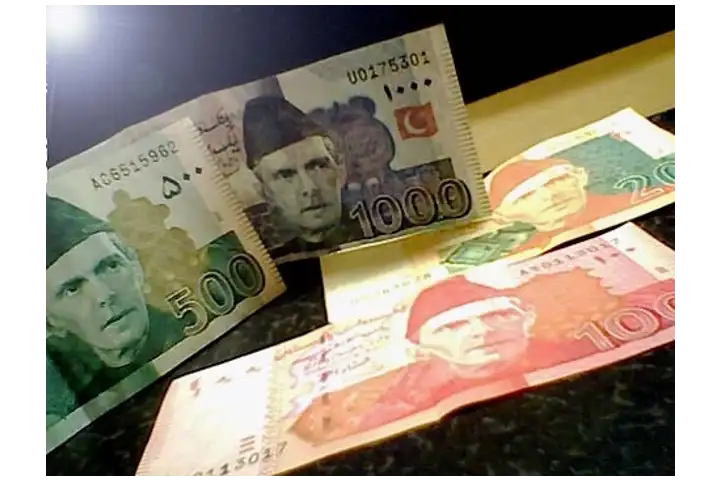Amid multiple economic challenges, the steady increase in the physical money supply in Pakistan is starting to haunt the Shehbaz Sharif government. The excess cash circulation has fanned parallel economy as well as inflation.
While the issue of black money has been under discussion, no concrete step has been taken by the governments in power.
Interestingly, according to the Express Tribune, Pakistan’s local newspaper “the example of India’s demonetisation of high-value currency notes was cited.” “Although it initially posed challenges for the economy and daily wage earners, it ultimately kept inflation and interest rates in check while fostering economic growth,” the newspaper said.
Discussions have also been held on whether phasing out the (Pakistani) Rs 5000 notes would help in curbing hoarding of cash. However, the proposal has got little support from the authorities.
The (Pakistani) Rs 5000 is the highest denomination currency notes in the South Asian nation. Most reports have suggested that higher denomination currency notes is a driver for hoarding cash.
Cash circulation has significantly expanded in the last one year despite the economic crisis in the South Asian nation. Physical cash constitutes about 29 per cent of the total value of money in the system in Pakistan.
Pakistan’s black economy is estimated at about $341.5 billion. As per IPSOS, a market research firm, Pakistan shadow economy accounted for about 40 per cent of GDP. That apart, it also said that 6 per cent of Pakistan GDP is being stolen every year. Unfortunately, this means that a massive chunk of money is going unaccounted and not getting reflected in the government books at a time when Pakistan was firefighting for months to avert a sovereign default. This money, had it been channelled officially, would have made a difference to the cash staved country. Not only would this have boosted the ailing economy but also contribute in improving the social fabric as much of it could have been used for education, health and other social benefits.
“A culture of corruption has been allowed to bloom in Pakistan and that is no secret. Today it is part of the ecosystem,” an analyst dealing with Afghanistan-Pakistan region pointed out. Money laundering and tax evasion are rampant and the governments over the years have done little to tackle this problem.
Pakistan Observer added that the illegal activities are rampant as individuals and businesses know “that they can get away with it.”
Meanwhile, Pakistan’s annual inflation in July stood at 28.3 per cent. Between February and May, the inflation rate was above the 30 per cent mark.
Many fear that the inflation could once again start inching upward after the recent fuel price hike.
The economic crisis has hit the common citizens the most. Until Pakistan makes an honest attempt to cleanse the system, the country’s economy will continue to ail.
Also read: Pakistan’s post-Imran era begins after Army bites the bullet and docks former Prime Minister




















